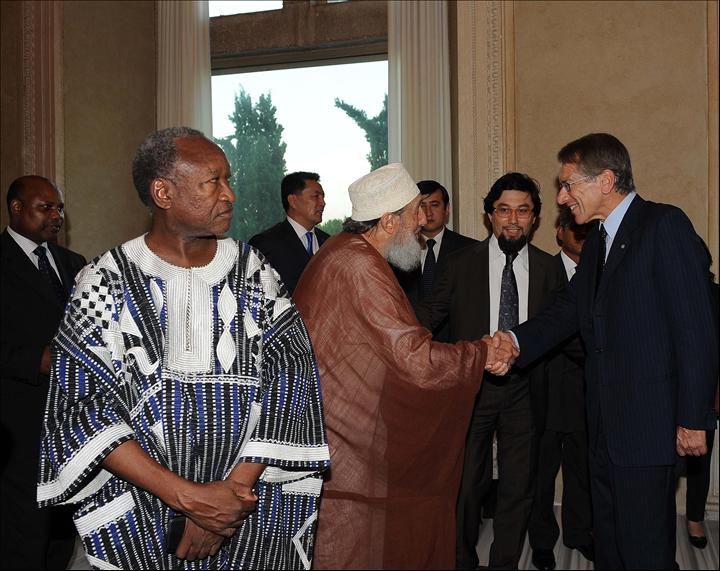The NL government falls on Afghanistan, a turning point in the war?

(BRUSSELS2) In The Hague (seat of the Dutch government), the discussions between coalition partners - social democrats from the PvDA on the one hand, Christian democrats from the CDA and the CU on the other - lasted a good part from Friday night to Saturday (February 19 - 20). At stake: the Dutch military commitment in Afghanistan.
The first (PvDA) were for the withdrawal of Dutch soldiers from this year (as planned in the government program), the second (CDA and CU) were to respond to NATO's request to maintain the troops, at least one year older. No agreement could be reached. And the government imploded (1). Prime Minister Jan-Pieter Balkenende therefore had no choice but to submit his resignation to Queen Beatrix.
Withdrawal: inevitable?
New legislative elections will be organised. And a new government coalition will have to be reformed. Will this change the national deal on the Afghan issue? It's not sure. Because as much the PVV (populist party of Geert Wilders) as the alternative parties (D66) or Greens are for the return to the country, as quickly as possible, of Dutch troops. And in public opinion, where the Afghan war has never been popular, it is pointless to look for any support for keeping troops in Afghanistan.
According to a survey conducted on the website of the Volkskrant, 75% of voters approve of the PvDA's decision to withdraw Afghan soldiers and the government (out of 9500 voters at the time I consulted the site). The significant pressure carried out in recent weeks in the Netherlands by various NATO and American personalities nhave not been repaid. On the contrary, they were even counter-productive...
A setback
for US and NATO strategy?
The Netherlands as an example?
If the news is confirmed, Dutch soldiers should begin to withdraw from Uruzgan province as early as this summer and be completed before the end of the year. This will require their rapid replacement. By who ? The Dutch are numbered
of 2000 and held a particularly difficult and strategic southern province, Uruzgan. Few Europeans seem ready to take over.
Replacement by US troops would mean taking troops from other fronts. Be that as it may, while a "noisy" NATO offensive is engaged in Marjah, this withdrawal comes at the worst possible time. This is a serious setback for the "surge" strategy of NATO and the Americans. Because the Netherlands are rather considered as a docile and unconditional ally of the Atlantic Alliance.
One can wonder if the Dutch decision does not serve as an example, or an excuse, and be followed by others in Europe. Especially since in several European countries, a political division is asserting itself on the question of the commitment in Afghanistan. 10 years later, the Western military intervention is not really a success, we hear more and more often, including from the mouths of soldiers
A turning point in the war
If other withdrawals are not to be feared in the near future, on the other hand, the sending of additional European reinforcements will become, if not impossible, at least much more complicated. The reluctance of public opinion to this war, added to the economic crisis and various political contingencies in the Member States will be so many pitfalls on the road to the military "surge". The fall of the Dutch government is a serious warning for many European governments engaged in coalition or unstable and could serve as an example for other European countries. One of the turning points of the war in Afghanistan may have been played out last night in the offices of The Hague, rather than on the ground. It won't be the first time...
Is a political division emerging?
in Europe on the Afghan issue?
The debate on Afghanistan is beginning to take a political turn in Europe. So far, the intervention in Afghanistan has generated a sort of consensus in the political class which, often, contrary to public opinion, considers a major Western commitment in Afghanistan justified and not questionable. Today, a division begins to take shape between the left and the right. A change largely due to the traditional social-democratic parties who no longer want to send reinforcements, or even question the justification for the intervention. Admittedly, this movement is not without electoral ulterior motives and it is not yet a majority in Europe. But he is no longer marginal. Examples...
En Finland, while there is a national debate on whether to join NATO, this subject could be one of the main topics of discussion in the next legislative elections. The Social Democratic Party is hostile to joining NATO and reluctant to send new reinforcements. The government submitted to the assembly a plan to send 50 additional soldiers.
En République tchèque, the Social Democrats very quickly opposed the government of V. Klaus and M. Topolanek, to block the sending of reinforcements to Afghanistan.
En Germany, the SPD has become very reluctant to send additional reinforcements, especially since it went into opposition. Certainly the defeat in the elections and the "competition" of Die Linke on its left flank explain this reversal. But we will also not fail to note that this position amounts to a more classic posture, of a German political class, often reluctant to send the Bundeswehr in offensive military actions abroad (cf. Iraq) .
En Belgium, if this position is still in the minority within the socialist parties, it could rapidly progress in the future. The question does not arise so much of the commitment in Afghanistan as of the form and intensity of the commitment when the armies are engaged in a major restructuring (with the closing of barracks as a result). The former Socialist Minister of Defense, André Flahaut, has - on several occasions - criticized his successor Pieter De Crem (CD&V), on this question.
Read also:
- The social democratic opposition CS refuses the mission in Afghanistan
- NATO's strategy in Afghanistan criticized by a German general
- A withdrawal schedule: the only way to win the war in Afghanistan
(photo credit: Dutch army)
(1) Afghanistan was not the only cause of discord between the coalition partners: the postponed retirement age, the austerity measures due to the crisis... have seriously undermined their understanding.


Indeed, Belgium is also on the slippery slope… The restructuring carried out in a hasty and thoughtless manner by Minister De Crem puts the military in operations in an extremely dangerous situation in terms of logistical support and monitoring of operations. Such an upheaval of structures can only bring dysfunctions. If, abandoned to themselves following the earthquake of the transformation, the Belgian soldiers were to suffer losses, there is no doubt that the Belgian government would be faced with an even more fragile political situation. On three occasions, the troops have already come very close to disaster during attacks. We can therefore say that Belgium is in an even worse situation than the Netherlands.